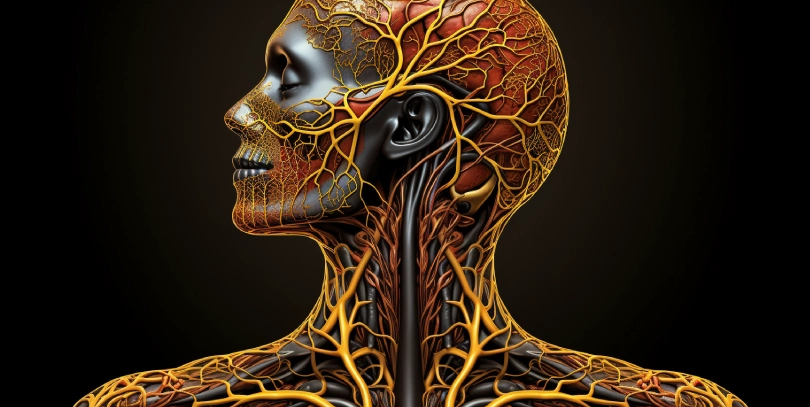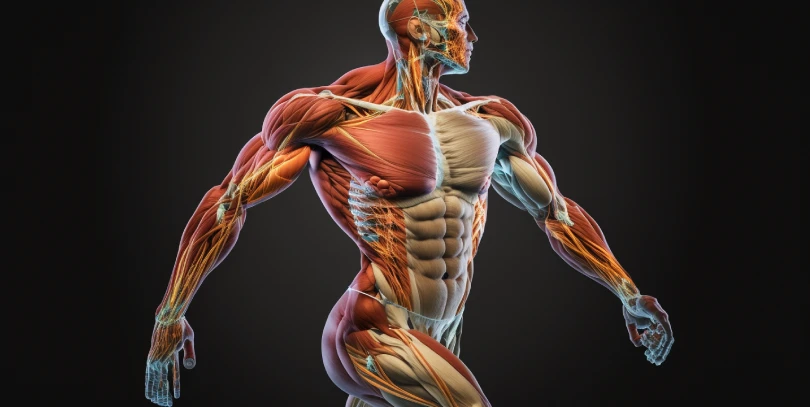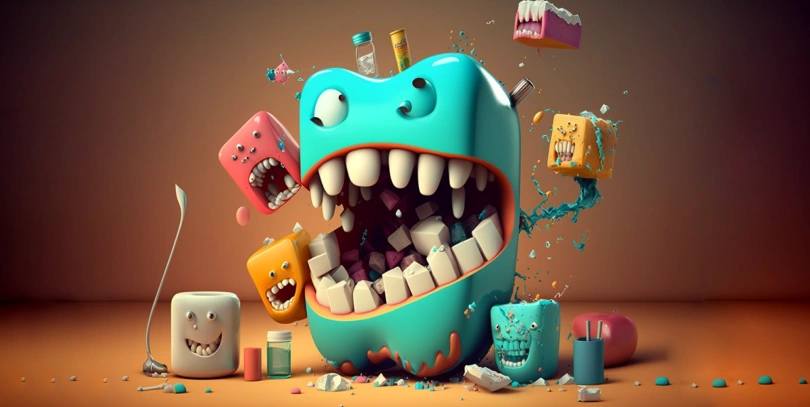Depression is a mental health disorder that affects an immense number of people across the globe, and besides causing emotional distress, it can also impede one’s ability to perform daily tasks. Here are 12 essential facts regarding this condition that everyone should be aware of.
1. Depression is a common mental health disorder
Depression is a real problem that many people face. The WHO estimates that it affects over 264 million individuals around the globe. It is a serious mental health disorder and should not be taken lightly. According to estimates, around a quarter of the world’s population will experience depression in their lifetime. This mental condition knows no age boundaries; it can affect children, young adults, and the elderly alike. Furthermore, women are more vulnerable to developing depression than men.
2. There exist 9 typical forms of depression
Different types of depression may present with specific symptoms and require certain treatment methods. Here are nine of the most frequently encountered forms of depression:
- Major Depressive Disorder is an exceptionally serious type of depression that can cause perpetual feelings of despondency, helplessness, and worthlessness. Those suffering from major depressive disorder may suffer from changes in appetite and sleep, lack of energy, and trouble focusing on any given task.
- Persistent Depressive Disorder commonly referred to as dysthymia is a type of depression that persists for a duration of two or more years. Persistent depressive disorder is a long-term type of depression that can have various symptoms like low mood, low energy, difficulty sleeping, and feelings of despair. These issues may last for at least two years and can interfere with daily life.
- Seasonal Affective Disorder is a form of depression that occurs in the winter when daylight hours are shorter. People who experience SAD usually have signs and symptoms like feeling down, being irritable, sleeping too much, and eating more than usual.
- Postpartum depression (PPD) is common in women after giving birth. Common symptoms of PPD include sadness, guilt, anxiety, changes in appetite, and sleep habits. It’s important to be aware of the signs and seek help if needed.
- Psychotic Depression is a severe type of depression that can cause people to experience psychosis symptoms like delusions and hallucinations. Along with such psychological issues, they may also suffer from low energy levels, changes in sleeping and eating habits as well as a feeling of low mood.
- Bipolar disorder is a serious mental health condition that affects an individual’s mood and behavior. People with this disorder usually experience episodes of depression and mania which involve feelings of sadness and low energy, as well as high energy, impulsivity, and grandiosity.
- Atypical Depression is a form of depression that involves symptoms like extra sleep, increased food cravings, and sensitivity to criticism. People affected by it tend to react strongly to positive occurrences, although their mood can quickly become gloomy again.
- Situational Depression is a kind of depression triggered by a traumatic life event like divorce, the loss of a job, or an illness. It is also known as adjustment disorder with depressed mood. Situational depression is a condition that can cause symptoms similar to major depressive disorder, but they are usually less intense.
- Premenstrual Dysphoric Disorder (PMDD) is a type of depression that usually occurs before or during the menstrual cycle. Common symptoms are reduced mood, irritability, and tiredness.
3. Depression is different from feeling sad
While it’s common to experience occasional sadness, depression is much more than that. It’s a persistent feeling of overwhelming helplessness that can last for extended periods. Other signs and symptoms of depression may include loss of interest in previously enjoyed activities, fatigue, and changes in appetite and sleep patterns. The appearance of these symptoms can make life difficult, and seeking professional assistance may be necessary to manage them effectively.
4. Depression can affect anyone
Depression affects people of all ages, genders, ethnicities, and economic backgrounds. It is something that anyone can experience, although some individuals may be more prone to it than others. Depression is a mental illness that can arise from various sources. These include previous experiences of trauma or abuse, a family history of depression, chronic stress, and some medical conditions. Therefore getting an early diagnosis and actively addressing the risk factors can help nip the problem in the bud.
5. Depression can be caused by a combination of factors
Depression can have various causes, including genetic, biological, and psychological factors. Adverse life events, such as trauma or chronic illness, may also increase the risk of developing depression. Disruptions in neurotransmitters like serotonin, dopamine, and norepinephrine can also play a role in this mental health disorder. Understanding the underlying causes of depression is crucial for developing more effective treatment options.
6. Depression is hereditary
Having a family history of depression can be a potential risk factor for developing depression. Thus, if someone has close relatives with depression, they may be more likely to experience it as well. However, depression is a complex issue, so being predisposed to it genetically does not necessarily mean it will manifest. Various environmental and lifestyle factors can also contribute to the emergence of depression.
7. Depression can have physical symptoms
Symptoms of depression can include physical ailments such as tiredness, insomnia, loss of appetite or overeating, and aches and pains. People with depression may also experience digestive problems, such as nausea or constipation. Managing these symptoms can be complicated and may involve utilizing various medical strategies. For effective treatment, the source of the symptoms must also be addressed, which could involve looking into any causes that may be adding to the severity of the condition, such as lack of exercise or stress.
While medications are not always the first line of treatment, they can be incredibly helpful in managing depression. However, some medications may have side effects such as weight gain, drowsiness, and dizziness, which can make it more difficult for people to adhere to their regimen. People with depression need to know that these medications can provide relief from the condition if taken in conjunction with other treatments and ongoing lifestyle changes like counseling and therapy.
8. Depression can be treated
For individuals suffering from depression, there are effective methods of treatment available. These can range from psychotherapy, medication, or a combination of the two. With the right kind of help and support, it is possible to manage and overcome this mental health condition. Personal support from those closest to you, changes in lifestyle, and taking time for yourself are great ways to help manage depressive symptoms. When it comes to finding a treatment plan, it should be tailored uniquely for the individual and there may need to be some experimentation before the most effective approach is found.
9. Neurotransmitters can cause depression
Neurotransmitters are responsible for sending signals in the brain which control our mood and other physiological activities. An imbalance of certain neurotransmitters, like serotonin and norepinephrine, has been correlated with a higher risk of developing depression.
Serotonin and norepinephrine are two chemical messengers in the brain which are responsible for influencing emotion and motivation. Research has revealed that low levels of serotonin can be linked to various emotional issues like depression, irritability, and anxiety. Low levels of norepinephrine can lead to tiredness, apathy, and difficulty being motivated, among other symptoms.
Treatment of depression typically requires medications that target abnormal levels of neurotransmitters, such as SSRIs and NRIs. These drugs help to correct imbalances in the brain’s chemistry, resulting in symptoms associated with depression being alleviated and recovery eventually taking place.
10. Depression can increase the risk of suicide
Depression is a major global risk factor for suicide. Research suggests that up to 90% of people who pass away due to suicide usually have an existing mental health diagnosis like depression. Thus, it’s important to get help if you or someone around you is facing suicidal tendencies or thoughts.
11. Depression can co-occur with other mental health conditions
Depression often co-occurs with other mental health conditions, such as anxiety, substance abuse, and eating disorders. When depression is comorbid with another condition, it can make treatment more complicated and may require a more comprehensive approach. It’s important to receive a thorough evaluation from a mental health professional to determine if multiple conditions are present, and to receive treatment tailored to each condition.
12. Depression can recur
Even if treatment for depression is successful, it can come back again. To prevent a relapse, it’s important to continue with treatment and keep an eye on symptoms. This may include ongoing therapy, medication management, and making lifestyle changes to reduce symptoms and lower the risk of another episode occurring.
Conclusion
Depression is a debilitating mental disorder that has a worldwide prevalence. It can lead to serious consequences in one’s life, so it is important to recognize the signs and find proper treatment. Recognizing these symptoms and getting help early can be very beneficial. Despite being a common mental health issue, misconceptions about depression persist which impede those who are struggling from accessing the support and care they need.
Sources:
- Jed Foundation – Understanding Depression and Depressive Disorders
- American Psychiatric Association – What Is Depression?
- Medical News Today – What is depression and what can I do about it?
- Lustgarten Foundation – Interview with an Expert: Understanding Depression and Anxiety
- Healthline – Everything You Need to Know About Depression
- Betterhealth – Depression explained






